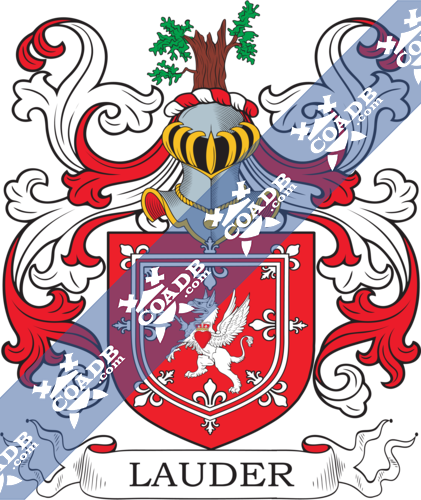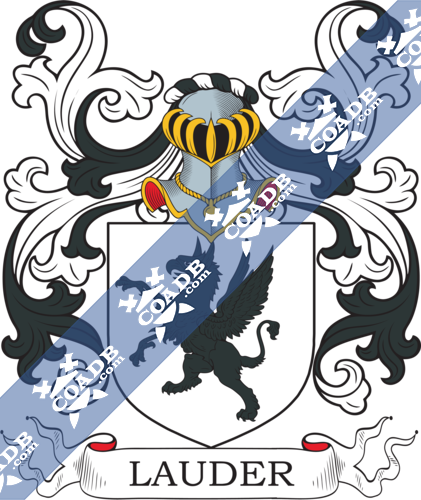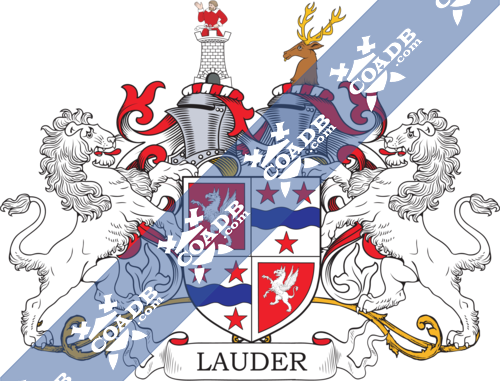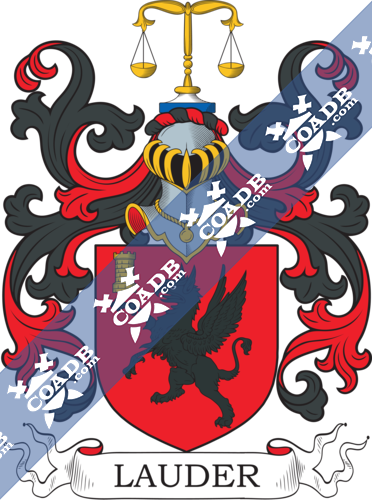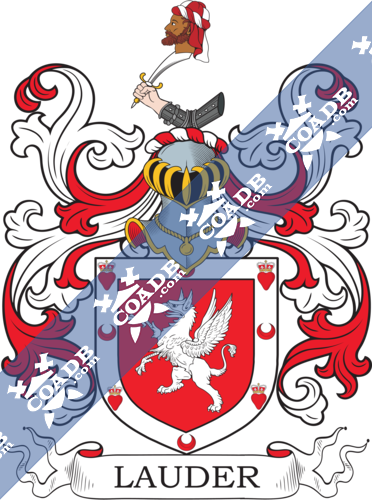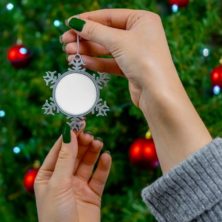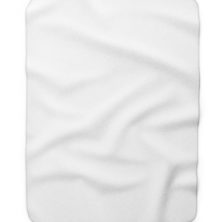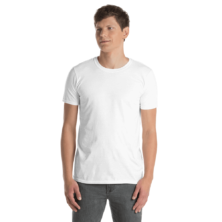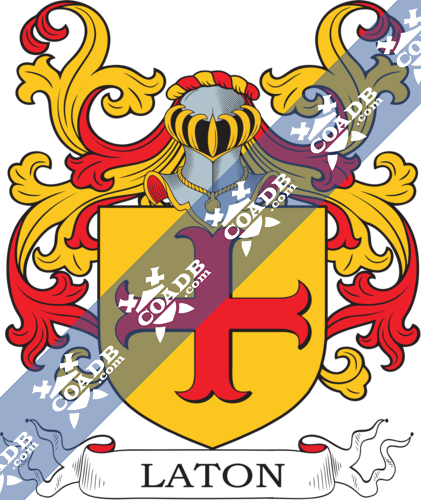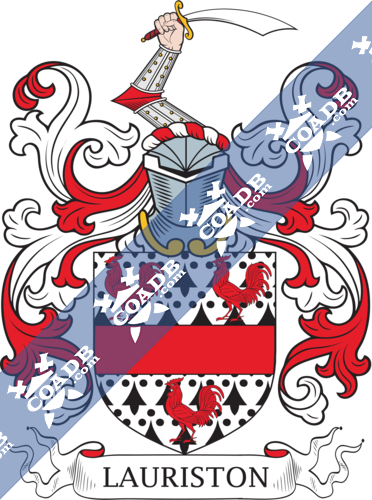Lauder Family Crest, Coat of Arms and Name History
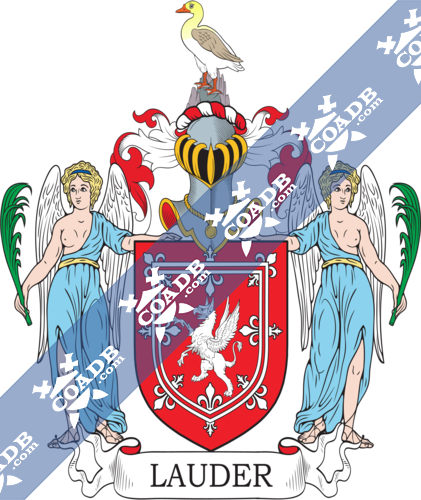
Lauder Coat of Arms Gallery
Don’t know which Coat of Arms is yours?
We can do a genealogical research. Find out the exact history of your family!
Learn MoreLauder Origin:
Scotland
Origins of Lauder:
Listed in the spellings as Lauder and Lauderdale, this is a popular Scottish geographical surname. As Lauder, it originates from the hamlet of Lauder in the district of Berwickshire, and as Lauderdale from a name for the western district of the similar district of Berwickshire. The translation of the place name and hence the next surname considered being from the French-Breton pre 7th-century word “name,” which means a channel or canal. The surname was one of the first listed in Scotland, and early examples derived from actual rolls and records of the old period contained as William de Lawedre, the sheriff of Perthshire in the rule of King Alexander III of Scotland (1249 – 1286), Alan de Lawadyr, who observed a charter by Stephen Fleming, master of the Hospital of Soltre in 1426, and Johannes Lathirdale, an official public, in the city of Glasgow in 1472. Other recordings include Sir David Luthirdale, archdeacon of Dunkeld in 1477, while William Lauder, given as being a learned criminal, passed away in 1771
Variations:
More common variations are: Llauder, Laudehr, name, Laauder, Laudwer, Laudere, Laudder, Laudher, Lauderw, Lader.
England:
The origins of the surname Lauder appeared in Berwickshire where people held a family seat from old times. Someone say better before the invasion of Normans and the entrance of Duke William at Hastings 1066 A.D.
The very first recorded spelling of the family was shown to be that of Robert de Lauedre, dated about 1250, in the “Records of the Abbey of Dryburgh.” The origin of surnames during this period became a necessity with the introduction of personal taxation. It came to be known as Poll Tax in England.
Ireland:
Many of the people with surname Lauder had moved to Ireland during the 17th century.
United States of America:
Individuals with the surname Lauder landed in the United States in three different centuries respectively in the 17th, 18th, and 19th. Some of the people with the name Lauder who arrived in the United States in the 17th century included D Lauder, who landed in Texas in 1650-1906.
Individuals with the surname Lauder who landed in the United States in the 18th century included Peter Lauder, who arrived in Virginia in 1704. George Lauder settled in Virginia in 1716.
The following century saw more Lauder surnames come. Some of the people with the surname Lauder who arrived in the United States in the 19th century included John and Sarah Lauder, who settled in Belfast Maine in 1820. George Lauder, who arrived in North Carolina in 1851.
Canada:
with the surname Lauder who settled in Canada in the 19th century included Nathaniel Lauder, who landed in Esquimalt, British Columbia in 1862.
Australia:
Some of the individuals with the surname Lauder who landed in Australia in the 19th century included John Lauder and John Lauder, both also arrived in Adelaide, Australia aboard the ship “Emily” in the same year 1849. William Lauder arrived in South Australia in 1854 aboard the ship “Dirigo.”
New-Zealand:
Some of the population with the surname Lauder who arrived in New Zealand in the 19th century included Edward Lauder arrived in Wellington, New Zealand aboard the ship “Wairoa” in 1877.
Here is the population distribution of the last name Lauder: United States 2,015; England 1,549; Australia 982; Scotland 971; Canada 849; Philippines 644; South Africa 329; New Zealand 272; Turkey 210; Wales 147.
Notable People:
Abram William Lauder (1834-1884), was a Canadian advocate and leader.
Afferbeck Lauder pseudonym of Alastair Ardoch Morrison (1911-1998), was an Australian graphic artist.
Alexander Lauder (d. 1440), was a priest of Dunkeld.
Alexander Lauder of Blyth (d. 1513), was a Provost of Edinburgh.
David Ross Lauder (1894-1972), was a Scottish Victoria Cross recipient.
Estée Lauder (person) (1906-2004), was the founder of Estée Lauder Companies.
Harry Lauder (1870-1950), was a Scottish music-hall artist.
James Eckford Lauder (1811-1869), was a Scottish entertainer.
Thomas Lauder (1395-1481), was a Scottish priest.
Blazons & Genealogy Notes
1) (Bass, Scotland). Motto—Sub umbra alarum tuarum. Gu. a griffin segreant within a double tressure flowered and counter-flowered ar. Crest—A solan goose sitting on a rock ppr. Supporters—Two angels ppr.
2) (Belhaven and Westbarnes; descended from Lauder, of Bass). Motto—Repullulat. Arms, the same as of Bass, charging the griffin’s breast with a heart ensigned with an imperial crown all ppr. for diff. Crest—The trunk of an old tree budding ppr.
3) (Hatton, Scotland). Ar. a griffin segreant sa.
4) (Newington, ancestor of Fountainhall, 1672). Motto—Mediocria firma Gu. a griffin segreant sa. in the dexter canton a tower or. Crest—A balance equilibriated or.
(now Dick-Lauder, Fountainhall, co. Haddington, bart., 1688). Mottoes—For Lauder: Tunis prudentia custos; for Dick: Virtute.
5) Quarterly, 1st and 4th, gu. a griffin segreant within a bordure ar., for Lauder; 2nd and 3rd, ar. a fess wavy az. betw. three mullets gu., for Dick. Crests—For Lauder: A tower embattled ar. masoned sa. thereon a man in a watching posture full-faced, his head and shoulders only appearing ppr.; for Dick: A stag’s head erased ppr. attired or. Supporters—Two lions ar.
6) (Winepark, Scotland, 1745). Gu. a griffin segreant ar. within a bordure of the last charged with four hearts ensigned with imperial crowns ppr. and as many crescents gu. Crest—A dexter hand holding a scymitar, and on the point thereof a Saracen’s head all ppr.

